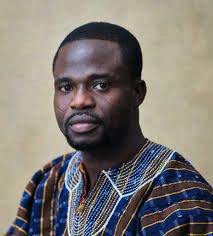Investigative journalist Manasseh Azure Awuni has added his voice to Ghana’s heated debate over last-minute government appointments, arguing that legislation alone cannot end the cycle of rushed recruitments by outgoing administrations.
Speaking on TV3’s Key Points on February 15, 2025, Awuni stressed that the country’s two dominant political parties—alternating in power for decades—must prioritize ethical governance over partisan tactics. “A law isn’t enough. These parties must act in good faith to stop traumatizing young people and their families with abrupt job offers that vanish when governments change,” he said, highlighting the human toll of the practice.
Awuni’s stance aligns with private lawyer Martin Kpebu, who earlier on the same program dismissed the idea that laws alone could fix systemic opportunism. “Legislation won’t work without a mindset shift. People will always find loopholes,” Kpebu argued, emphasizing the cultural roots of the issue. Their skepticism contrasts sharply with Godwin Edudzi Tameklo, CEO of the National Petroleum Authority, who insists a legal ban on major appointments three months before elections is the “surest solution” to curb abuses.
The debate has gained urgency following the government’s controversial decision to revoke appointments made by former President Akufo-Addo’s administration after December 7, 2024. In a February 10 circular, Chief of Staff Julius Debrah ordered state institutions to annul these recruitments, calling them incompatible with “good governance.” The directive, which demanded compliance reports by February 17, has sparked backlash. Richard Ahiagbah, Communications Director for the opposition New Patriotic Party, has urged affected individuals to sue, claiming the move violates Article 66(1) of Ghana’s Constitution. He argues Akufo-Addo’s authority remained valid until his successor’s January 7 inauguration, rendering the appointments lawful.
Critics, however, see the revocation as a symptom of a deeper problem: a recurring pattern where outgoing governments exploit their final days to secure political favors, while incoming administrations retaliate by undoing those decisions. Awuni and Kpebu warn that without a cultural reckoning, legal reforms risk becoming tools for selective enforcement. “Why do parties wait until their final hours to hire en masse? It’s about power, not public service,” Awuni remarked.
The standoff underscores a global challenge in democracies: Can laws outpace bad faith, or must societal values evolve first? Ghana’s experience suggests both are needed. While Tameklo’s proposed law could set clearer boundaries, its success hinges on parties committing to transparency rather than gaming the system. For now, the cycle continues—a tug-of-war between legal technicalities and the unspoken rules of political survival.
As citizens await resolution, the question lingers: Will Ghana’s leaders choose lasting reform, or will the trauma of last-minute appointments remain a rite of passage for generations to come?
